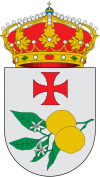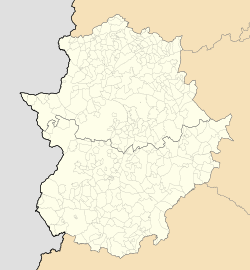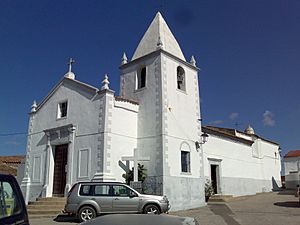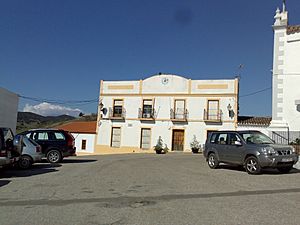Táliga facts for kids
Quick facts for kids
Táliga
Talega
|
|||
|---|---|---|---|
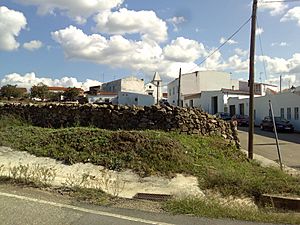 |
|||
|
|||
| Country | |||
| Spanish community | Extremadura | ||
| Spanish Province | Badajoz | ||
| Area | |||
| • Total | 31 km2 (12 sq mi) | ||
| Elevation | 315 m (1,033 ft) | ||
| Population
(2018)
|
|||
| • Total | 681 | ||
| • Density | 22.0/km2 (56.9/sq mi) | ||
| Demonym(s) | Taligueño/ña | ||
| Time zone | UTC+1 (CET) | ||
| • Summer (DST) | UTC+2 (CEST) | ||
| Postal code |
06133
|
||
| Official language(s) | Spanish | ||
Táliga (pronounced TAH-lee-gah) is a small town and municipality in Spain. It is located very close to the border with Portugal. This town is part of the Badajoz province in the Extremadura region of Spain.
Táliga is special because both Spain and Portugal have different ideas about who it belongs to. Portugal believes Táliga, along with a nearby town called Olivenza, should be part of Portugal. Spain has controlled these areas since 1801. This is a historical disagreement between the two countries.
Contents
History of Táliga
Early Days Under Portugal
For a long time, Táliga was part of Portugal. It was known as Talega and was a freguesia (which is like a parish or a small area) within the larger municipality of Olivenza.
Becoming Part of Spain
In 1801, Spain took control of Táliga and Olivenza. Even though Portugal still claims these areas, Spain has managed them ever since. In 1850, Táliga became its own independent municipality. This means it got its own local government, separate from Olivenza, while still being under Spanish rule.
Life in Táliga
Táliga is a small community. As of 2018, about 681 people lived there. The people from Táliga are called Taligueño (for a boy or man) or Taligueña (for a girl or woman). The main language spoken is Spanish.
The town is located at an elevation of 315 meters (about 1,033 feet) above sea level. It covers an area of about 31 square kilometers (about 12 square miles).
Local Government
The town is led by an Alcalde, which is like a mayor. As of 2007, the mayor was Inmaculada Bonilla Martínez. She was part of the PSOE, one of Spain's main political parties.
See also
 In Spanish: Táliga para niños
In Spanish: Táliga para niños



